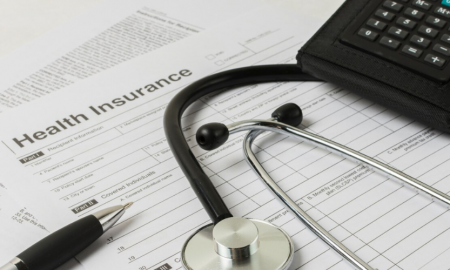
How Is Bipolar Disorder II Different From Bipolar Disorder I?

Bipolar disorder II is a form of mental illness that is similar to bipolar disorder I. People who suffer from this condition often have moods that are cycling between high and low over a short period of time. There are some differences which make bipolar disorder II a little different from its counterpart.
In bipolar disorder II, the high moods never progress to full-blown mania. The elevated moods have less intensity, and they are called hypomanic episodes of hypomania in bipolar disorder II.
People affected by bipolar disorder II have at least a single hypomanic episode during their lives. Episodes of depression are, however, common among most people who suffer from bipolar disorder II. This is the reason why the term manic-depression has been coined for this condition.
People with bipolar disorder II often lead normal lives between the episodes of hypomania and depression.
 Who Is At Risk of Developing Bipolar Disorder II?
Who Is At Risk of Developing Bipolar Disorder II?
 Almost anyone can develop this condition. In the United States, approximately 2.5% of the population suffer from one form or the other of bipolar disorder. This translates to approximately 6 million people.
Almost anyone can develop this condition. In the United States, approximately 2.5% of the population suffer from one form or the other of bipolar disorder. This translates to approximately 6 million people.
The symptoms of bipolar disorder initially make a beginning during the teenage years or the early 20s. Almost all people with bipolar disorder II develop the condition before the age of 50. People who have immediate family members who suffer from this condition are at a higher risk of being affected.
 What Are The Symptoms Of Bipolar Disorder II?
What Are The Symptoms Of Bipolar Disorder II?
During an episode of hypomania, the elevated mood can display itself either as euphoria or irritability. The symptoms during episodes of hypomania include the following:
- Moving from one idea to the other without warning.
- Exhibiting excessive levels of confidence.
- Speaking rapidly and loudly and not giving an opportunity to be interrupted.
- Higher energy with hyperactivity and sleeplessness.
People who are experiencing hypomanic episodes are quite pleasant to be around with. They take an intense interest in other people and activities. They even infect people around them with their positiveness. However, the episodes can progress into a full-blown maniac, which can affect the ability of the person to function effectively. They could also indulge in impulsive or harmful behaviors, giving rise to dangerous consequences.
 What Are The Treatments For Bipolar Disorder II
What Are The Treatments For Bipolar Disorder II
People with bipolar disorder II can find relief from preventive drugs. These drugs level out moods in the long-term. The drugs can prevent the negative consequences of hypomania and also assist in the prevention of episodes of depression.
Mood stabilizers such as lithium are highly effective medications for controlling mood swings in bipolar disorder. Lithium has been used for over five decades to treat this condition. Lithium can take weeks before any effects can be seen, but it is better for long-term placement. This is especially so in cases of acute hypomanic episodes. After using lithium as a preventive medication, it is important to test blood levels of lithium and undergo other tests to understand the functioning of the kidney. The thyroid also has to be monitored in order to avoid side effects.
 Are There Any Preventive Measures For Bipolar Disorder II?
Are There Any Preventive Measures For Bipolar Disorder II?
 The causes of bipolar disorder are yet to be understood until this moment. Therefore, information about whether bipolar disorder II can be prevented entirely is not available at this stage. It is, however, possible to reduce the risk of developing episodes of hypomania or depression during the future after the condition has developed.
The causes of bipolar disorder are yet to be understood until this moment. Therefore, information about whether bipolar disorder II can be prevented entirely is not available at this stage. It is, however, possible to reduce the risk of developing episodes of hypomania or depression during the future after the condition has developed.
Patients will need regular therapy from a psychologist or a social worker combined with the medication that may have been prescribed. The psychotherapy can also help people to recognize any warning signs of a possible relapse before it may begin. it can also ensure that the medications prescribed are taken regularly.
More in Mental Health
-
`
Hair & Makeup Designer Sarah Rubano Talks Turning Mia Goth Into Pearl
Transforming an actor into an unrecognizable character is no small feat, and Mia Goth’s Pearl makeup in the hit movie “Pearl”...
December 17, 2024 -
`
The Physical Signs of Hunger and How Mindful Eating Makes a Difference
Hunger is one of the most basic yet essential signals our body uses to communicate its need for energy. However, many...
December 15, 2024 -
`
Why Did Chris Pratt Call Anna Faris Before Proposing to Katherine?
Chris Pratt, the beloved star of “Guardians of the Galaxy,” made headlines when he revealed that he called his ex-wife, Anna...
December 3, 2024 -
`
6 Proven Tips to Tackle Insurance Claim Denials Successfully
Claim denials are a common hurdle for healthcare providers and professionals, even for those who follow the necessary procedures to avoid...
December 1, 2024 -
`
5 ‘Bad’ Fitness TikTok Trends You Shouldn’t Follow
TikTok has become a haven for creative fitness advice. But not all trends are worth your time or your health. From...
November 23, 2024 -
`
Does Drinking Water Affect Adrenal Hormones?
Drinking water is often seen as a simple way to stay hydrated, but it has deeper effects on our body than...
November 14, 2024 -
`
Why We Feel the Loss of Celebrities So Deeply?
Celebrity grief might sound strange at first. After all, most of us have never met these famous figures in person, yet...
November 5, 2024 -
`
Are High Deductible Insurance Plans as Ideal as They Appear to Be?
High deductible insurance plans have been a hot topic for years, especially as healthcare costs continue to rise. For many Americans,...
October 31, 2024 -
`
How Training Load Data Can Transform Your Exercise Routine
Tracking progress during workouts is challenging. Simple metrics like mileage or time don’t show the whole picture. Understanding the overall effort...
October 26, 2024















You must be logged in to post a comment Login